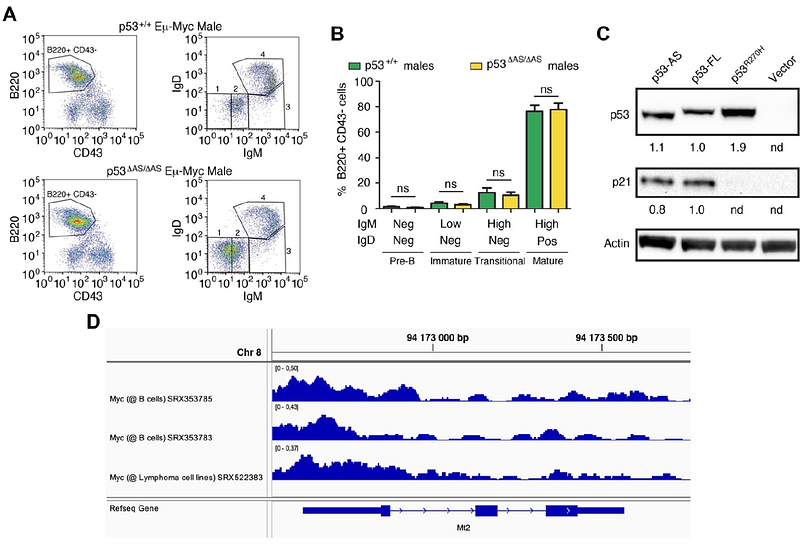Mutant mice lacking alternatively spliced p53 isoforms unveil Ackr4 as a male-specific prognostic factor in Myc-driven B-cell lymphomas

Mutant mice lacking alternatively spliced p53 isoforms unveil Ackr4 as a male-specific prognostic factor in Myc-driven B-cell lymphomas
Fajac, A.; Simeonova, I.; Leemput, J.; Gabriel, M.; Morin, A.; Lejour, V.; Hamon, A.; Vaysse-Zinkhofer, W.; Eldawra, E.; Rakotopare, J.; Pinskaya, M.; Morillon, A.; Bourdon, J.-C.; Bardot, B.; Toledo, F.
AbstractThe gene encoding p53, a major tumor suppressor protein, encodes several alternative isoforms of elusive biological significance. Here we show that mice lacking the Trp53 Alternatively Spliced (AS) exon, thereby expressing the canonical p53 protein but not isoforms with the AS C-terminus, have unexpectedly lost a male-specific protection against Myc-induced B-cell lymphomas. Lymphomagenesis was delayed in p53+/+ Eu-Myc males compared to p53DeltaAS/DeltaAS Eu-Myc males, but also compared to p53+/+ Eu-Myc and p53DeltaAS/DeltaAS Eu-Myc females. Pre-tumoral splenocytes from p53+/+ Eu-Myc males exhibited a higher expression of Ackr4 encoding an atypical chemokine receptor with tumor suppressive effects. We show that Ackr4 is a p53 target gene, but that its p53-mediated transactivation is inhibited by estrogens. We identify Ackr4 as a male-specific factor of good prognosis, relevant for murine Eu-Myc-induced and human Burkitt lymphomas. These data demonstrate the functional relevance of alternatively spliced p53 isoforms and reveal sex disparities in Myc-driven B-cell lymphomagenesis.